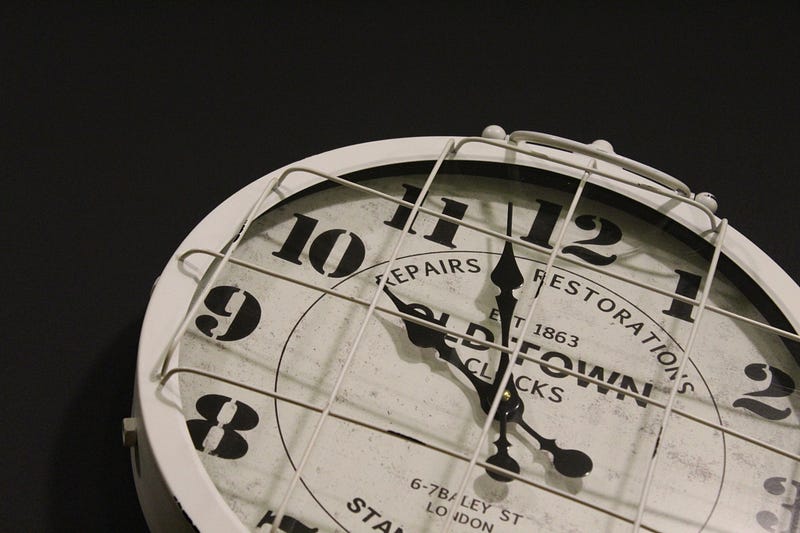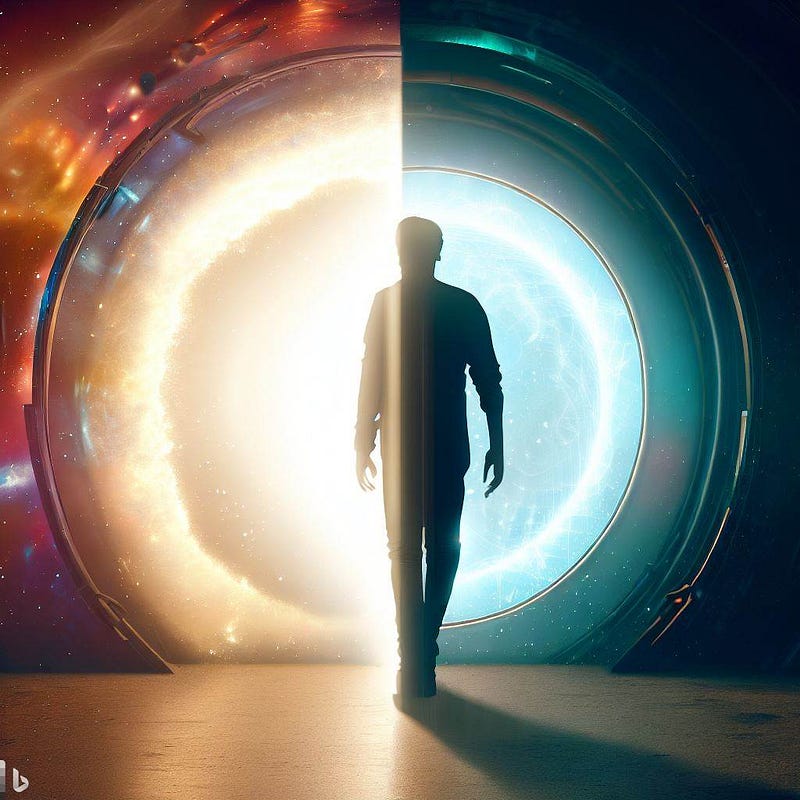# Exploring Time Travel: From Fiction to Scientific Inquiry
Written on
Chapter 1: The Fascination with Time Travel
The allure of time travel has intrigued humanity since H.G. Wells introduced it in his 1895 novel, The Time Machine. This imaginative tale ignited a lasting interest that has permeated scientific research and popular culture alike, motivating numerous scientists, mathematicians, and writers to consider the possibility of traversing through time. This article will explore the evolution of time travel theories from their fictional beginnings to the scientific advancements of the 20th and 21st centuries, examining the feasibility of time travel, the paradoxes it creates, and its implications for our understanding of the universe.

The Emergence of Time Travel in Literature
Wells’ innovative novel introduced the concept of a machine that could transport individuals through time, enabling them to observe both the distant past and future. This idea of navigating the temporal landscape became a popular motif in literature and film, inspiring works such as Mark Twain's A Connecticut Yankee in King Arthur’s Court, Kurt Vonnegut's Slaughterhouse-Five, and the Back to the Future film series. These narratives not only sparked the curiosity of scientists but also challenged the public's understanding of time and its seemingly unchanging nature.
Einstein's Relativity and the Basis of Time Travel
The scientific exploration of time travel gained momentum with Albert Einstein’s theory of relativity, which fundamentally altered our understanding of space and time. In 1905, Einstein unveiled his special theory of relativity, highlighting that time is not an absolute constant. He further expanded on these ideas with his general theory of relativity in 1915, which conceptualized gravity as the curvature of spacetime caused by mass.
Einstein’s theories opened new avenues for contemplating time travel, illustrating that time could be affected by factors like velocity and gravitational forces. One notable consequence of relativity is the "twin paradox," a thought experiment in which one twin remains on Earth while the other travels through space at speeds nearing the speed of light. Upon returning, the traveling twin would find their sibling considerably older, as time would have progressed more slowly for the traveler.
Wormholes and Time Loops
The concept of utilizing wormholes for time travel was introduced by physicist John Archibald Wheeler in the 1950s. Wormholes, or Einstein-Rosen bridges, are theoretical passages through spacetime that might link disparate points in the universe. If such structures exist, they could offer potential shortcuts for time travel.
In 1988, physicist Kip Thorne and his team proposed a stable, traversable wormhole that could, in theory, facilitate time travel. However, creating and sustaining such a wormhole would necessitate "exotic matter" with negative energy density—an elusive substance yet to be discovered.
Another time travel theory involves closed timelike curves (CTCs), loops in spacetime that would permit an object to return to its own past. While general relativity theoretically accommodates CTCs, their existence raises numerous paradoxes and questions about causality.
Paradoxes and Constraints
The notion of time travel is fraught with contradictions that challenge our understanding of cause and effect and the nature of reality. One of the most well-known is the "grandfather paradox," where a time traveler accidentally kills their grandfather, thus preventing their own birth. This dilemma raises profound inquiries about the consistency of timelines and the consequences of altering history.
Some physicists suggest that these paradoxes might be resolved through the Many Worlds Interpretation of quantum mechanics. According to this theory, each decision or event leads to the creation of multiple, parallel realities. In the context of time travel, this implies that any alterations made to the past would forge an alternate timeline while leaving the original timeline untouched. However, this solution introduces its own philosophical and scientific dilemmas concerning the nature of reality and the existence of parallel universes.
Time Travel in Quantum Mechanics
Recent developments in quantum mechanics have shed new light on the potential for time travel. In 1991, physicist David Deutsch proposed a model for time travel within the quantum framework, asserting that closed timelike curves could align with quantum mechanics under specific constraints. This model has been further refined by other physicists, including Seth Lloyd and his collaborators, who have shown that quantum time travel might be feasible without violating causality or creating paradoxes.

Conclusion: The Ongoing Quest for Understanding Time Travel
The concept of time travel has evolved significantly since H.G. Wells first popularized it. Transitioning from fiction to a serious scientific inquiry, researchers continue to investigate the ramifications of Einstein’s theories, wormholes, closed timelike curves, and quantum mechanics. While the practicality of time travel remains uncertain, the quest for understanding continues to expand the horizons of our knowledge regarding time, reality, and the universe. As we delve deeper into these captivating concepts, it becomes increasingly evident that time travel, once relegated to the realm of fiction, has become a crucial element in the scientific endeavor to unveil the profound mysteries of our existence.